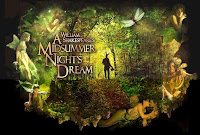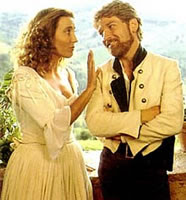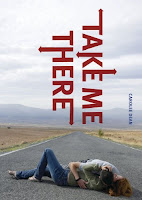In this edition of classic casting decisions, it's all about Jean. Jean Arthur was an interesting actress for many reasons. Her quirkiness was what made her so unique on film, yet so unadaptable in reality. She struggled for many years to find her place in celluloid splendor, but once she was tapped by Frank Capra, her career would be forever changed for the better. The days of B-movie Westerns and flat, uninteresting supporting roles were behind her. With her new star status-- after films like Easy Living and You Can't Take It with You-- came more clout. Jean was never a pushover when it came to her work, but she definitely became more choosy and particular about the films she took on as the years went by. This didn't necessarily mean that she had her pick of any film she wanted. In fact, just as Jean spent her career running from the roles she did NOT want to play, so too would she chase a few gems that seemed to evade her.

The most famous example of this is Gone with the Wind. Believe it or not, Jean was one of the final four in the running for the role of Scarlett O'Hara. This may seem like the most awkward interpretation of the feisty southern belle possible, but Jean had an ace in the hole: David O. Selznick. The two had been lovers prior to his marriage to Irene Mayer, LB's daughter, and Selznick was one of the first people in Jean's life to see some real potential in her. Though their relationship did not work out, David could still attest to the fact that she was a superb actress who had a surprising fire within her, despite her nervous exteriors. It is more probable that Jean approached him about playing the coveted role than vice versa, but it is clear Jean wanted the part badly. While Viven Leigh would later recall that when she put on the wardrobe for the screen test, it was still warm from the last actress, Jean Arthur would wear her own gowns, which she had had specially commissioned. When she learned at Christmas in 1938 that Viv had snagged the role from her and the other finalists-- Paulette Goddard and Joan Bennett-- Jean was so upset that she reportedly burned the negative of her audition!!!
Of course, we all can see that it worked out in the end. Jean's peculiar nature made her stand out from the crowd, which would have made her a good candidate for the saucy southerner, and her looks, which were very handsome but not drop dead gorgeous like Vivien Leigh, would have made her more physically comparable to the written character from Margaret Mitchell's novel, (in which Scarlett was described as "not beautiful"). Her passion and strength were also on par with the written Scarlett, as well as her youthfulness... But she was lacking something that Viv possessed. Perhaps it was more of an outright sexuality. Coquettishness, narcissism, and even a bit of vindictivness were needed in the character. These were things Viv saw and infused into her interpretation, which landed her the coveted role. Selznick made the right decision, for today, you can't imagine anyone else surrounded by that batch of beau at the Twelve Oaks picnic, nor can you imagine Rhett Butler lusting after any other lady.


1939 turned out to be a doubly sour year for Jean. Not only did she miss out on and then have to witness all the hubbub for GWTW, but she then lost another role that she really wanted: Lorna Moon in Golden Boy. Since Jean's talent and technique had been honed on the theatrical stage, it is no wonder that she jumped at the chance of working on Clifford Odet's smash hit when she learned that it was going to be adapted for the screen. Initially, it would seem that the tragic Frances Farmer (right), who had established the role in New York when it premiered, would be offered the role. Unfortunately, a falling out between her and the rest of the company, allegedly because of an affair that she had had with Odets, took her out of the running long before it was even in pre-production. Jean had high hopes but was eventually disappointed when the part went to Barbara Stanwyck instead of herself.

Though Jean may have been bitter at the time, she could not help but admit, especially later in life, that Babs (left with Golden Boy co-star William Holden) was one Hell of a lady. In fact, when the two were filming their separate television shows, "The Jean Arthur Show" and "The Big Valley," which were in competitive time slots, Jean would stop over to check out the "Valley" set and witness the continued diligence and professionalism of Stanwyck, whom she considered a class act. Barbara was still doing stunts, working all day in top form, dealing with publicity and reporters, and all while succumbing to the effects of emphysema. Certainly, even Jean could concede that Barbara's interpretations and performances throughout her career were something to behold, including her screen steal in Golden Boy.

Of course, Jean was not innocent of the occasional screen-grab either. While many of her greatest successes came from working with Frank Capra, who later considered her his favorite actress, none of the roles she played in his films were shoe-ins. When Capra was casting for his big, break-through movie, Mr Deeds Goes to Town, his leading lady was to be Carole Lombard. Yet another screwball queen, Carole seemed to be perfect for the role of the snappy and jaded Babe Bennett. Carole had worked with Gary Cooper, a former lover, in the film Now and Forever a couple years before, and the two had very believable on-screen chemistry. However, as fate would have it, Carole turned down the role to perform in one of the best films of her career, My Man Godfrey, as Irene Bullock (above with William Powell). She would be nominated for an Academy Award for her performance. Once she was out of the running, Capra was on a quest for a new woman to play the sarcastic newspaperwoman with a heart of gold. Enter Jean.

Rumor has it that Capra was looking in vain for his leading lady when he happened to step into a screening room that was playing one of Jean's latest films. Immediately, he knew that he had found a diamond in the rough! However, the truth is that she may just have been the next actress on the list at Columbia Pictures. However they found each other, the movie they made was magic. Jean was able to portray just the correct amounts of tough and tender, proving the perfect foil for Gary's Longfellow Deeds, and representing the hardened modern woman whose heart could still be melted by the right man. The movie was such a runaway success that Capra tried to recreate the chemistry for Mr. Smith Goes to Washington. However, this time it would be Coop who would turn down the role of the young senator, leaving the pathway open for Jimmy Stewart. Looking back, it is clear that Capra was very influential in taking the careers of both Jean Arthur and Jimmy Stewart from a simmer to a boil!

Jean and Jimmy discuss politics
in Mr. Smith Goes to Washington

Jean and Jimmy had worked together previously in Capra's You Can't Take It with You. It was their easy onscreen camaraderie and adorable natures that made them believable as lovers tormented by their conflicting families. Their attraction was equally palpable for the camera, and some say that-- at least on Jean's side-- it was not feigned. You Can't Take It with You was one of Jimmy's biggest films up to that point, and all the girls on the set developed crushes on him. However, it was not always Jean who was set to be his co-star. For a time, it looked like Alice Sycamore would be played by Olivia De Havilland (left), who coincidentally would become romantically involved with Stewart not long after. However, Olivia was working for Jack Warner over at Warner Bros, and he was not about to loan out one of his biggest stars to a rival studio! Thus, Jean and Stewart were left to make the magic together. You Can't Take It with You won over the hearts of its audiences as well as the Academy Award for best picture that year.

Together again, J&J make history in YCTIWY...
(though this was filmed before Mr. Smith)
Through hard work and a little bit of luck, Jean was able to create for herself an unparalleled career, starring in an almost unstoppable string of hits. Say what you will of the lady in person, before the camera, she was a goddess. When you talk about the biggest movies from the 30s and 40s, her name comes up time and again. In her case, it seems that casting was not quite as significant as it was for others, since she elevated every film she was in, dedicating herself to making multilayered and intriguing personalities that shaped the face of cinema forever.


















































.jpg)




